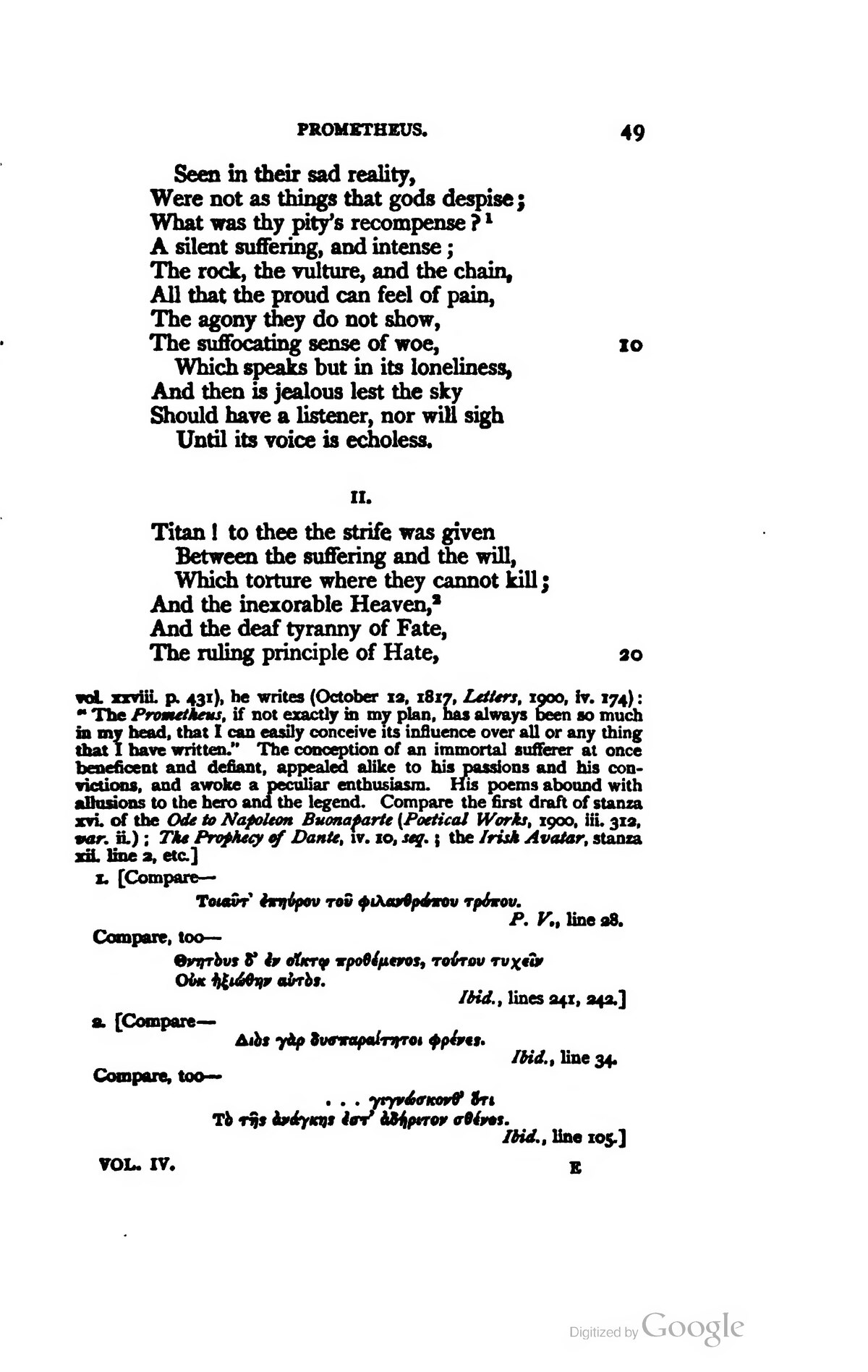Seen in their sad reality,
Were not as things that gods despise;
What was thy pity's recompense?[1]
A silent suffering, and intense;
The rock, the vulture, and the chain,
All that the proud can feel of pain,
The agony they do not show,
The suffocating sense of woe,10
Which speaks but in its loneliness,
And then is jealous lest the sky
Should have a listener, nor will sigh
Until its voice is echoless.
II.
Titan! to thee the strife was given
Between the suffering and the will,
Which torture where they cannot kill;
And the inexorable Heaven,[2]
And the deaf tyranny of Fate,
The ruling principle of Hate,20
- ↑ [Compare—
Τοιαῦτ' ἐπηύρου τοῦ φιλανθρώπου τρόπου.
P. V., line 28.Compare, too—
Θνητὸυς δ' ἐν οἴκτῳ προθέμενος, τούτου τυχεῖν
Οὐκ ἠξιώθην αὐτὸς.Ibid., lines 241, 242.] - ↑ [Compare—
Διὸς γὰρ δυσπαραίτητοι φρένες.
Ibid., line 34.Compare, too—
...γιγνώσκονθ' ὅτι
Τὸ τῆς ἀνάγκης ἐστ' ἀδήριτον σθένος.Ibid., line 105.]
vol. xxviii p. 431), he writes (October 12, 1817, Letters, 1900, iv. 174): "The Prometheus, if not exactly in my plan, has always been so much in my head, that I can easily conceive its influence over all or any thing that I have written." The conception of an immortal sufferer at once beneficent and defiant, appealed alike to his passions and his convictions, and awoke a peculiar enthusiasm. His poems abound with allusions to the hero and the legend. Compare the first draft of stanza xvi. of the Ode to Napoleon Buonaparte [Poetical Works, 1900, iii. 312, var. ii.); The Prophecy of Dante, iv. 10, seq.; the Irish Avatar, stanza xii. line 2, etc.]
